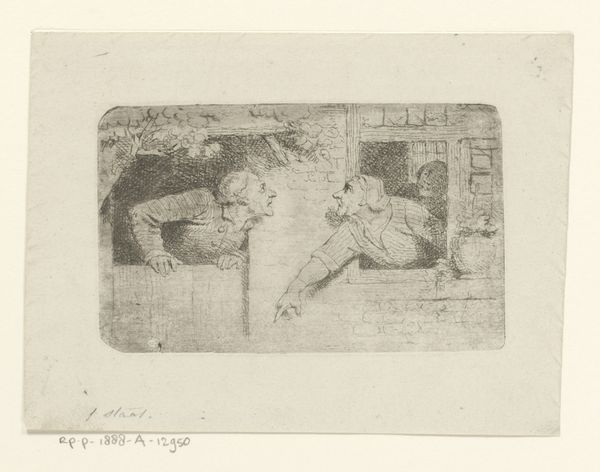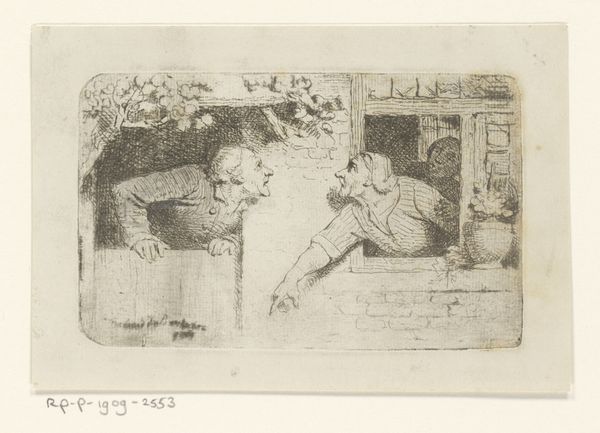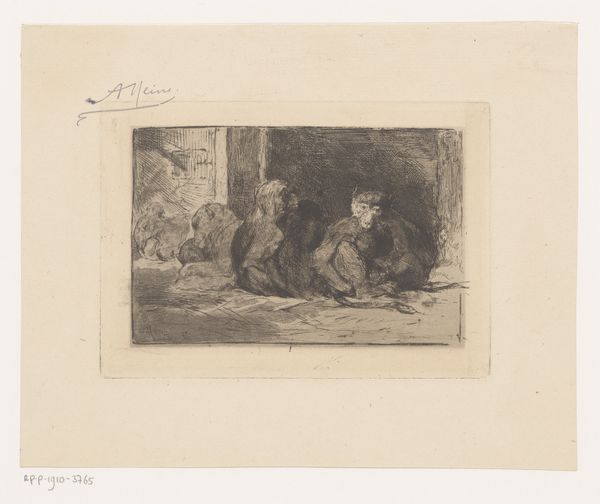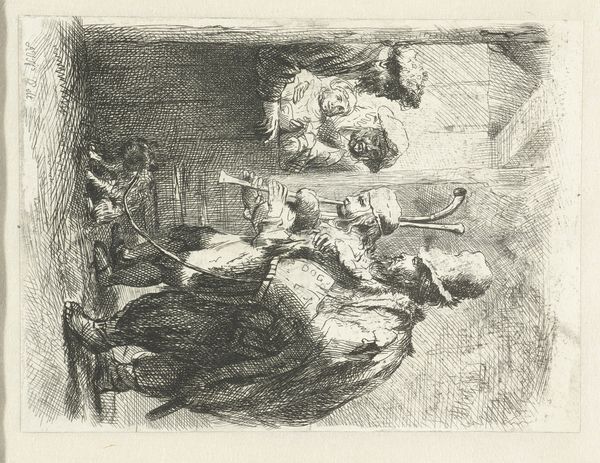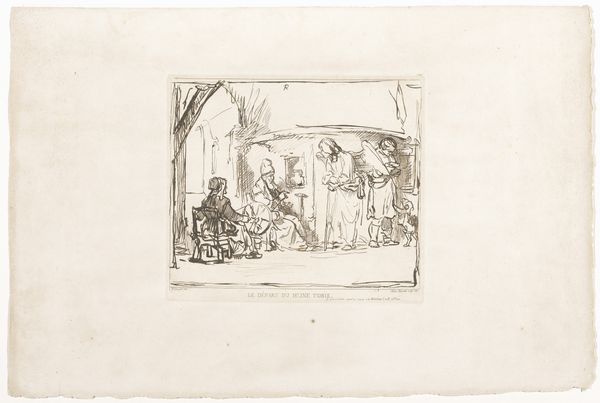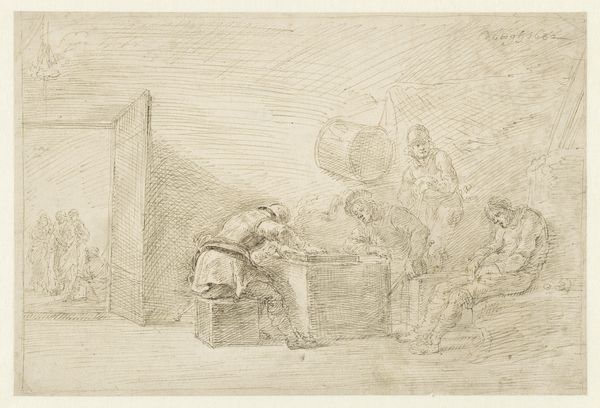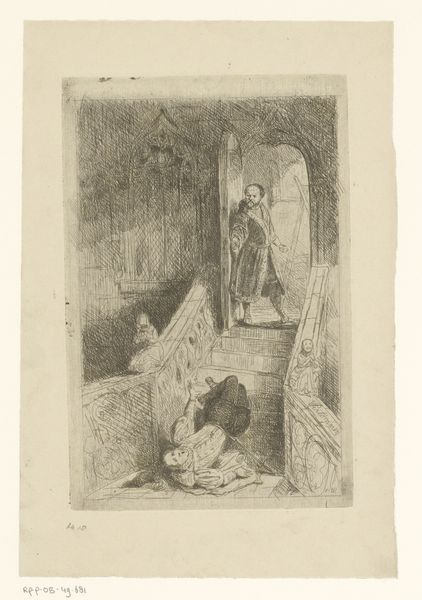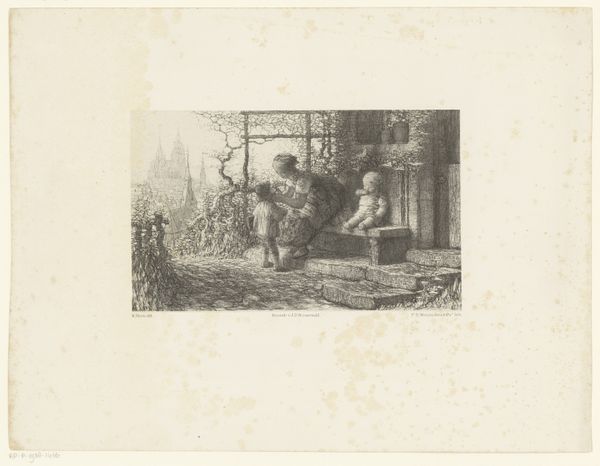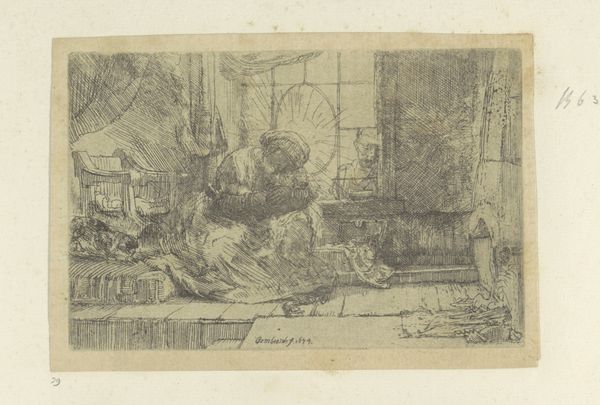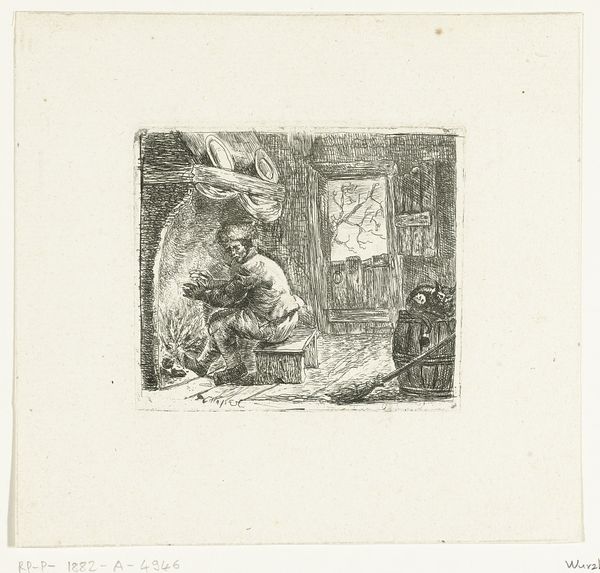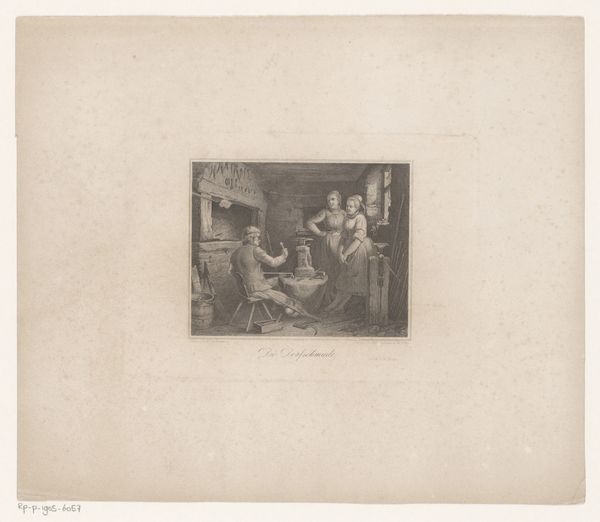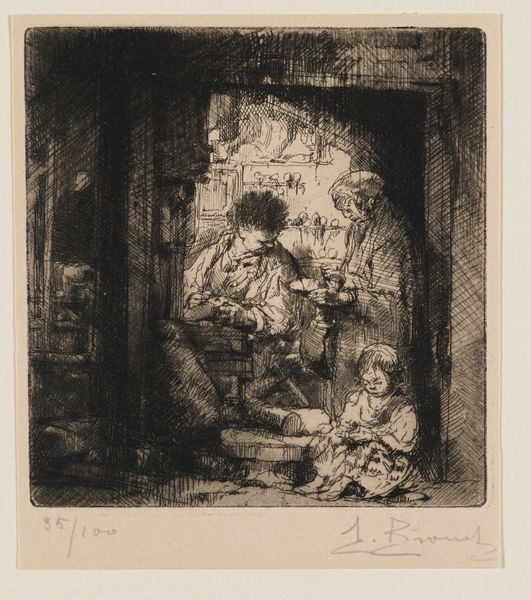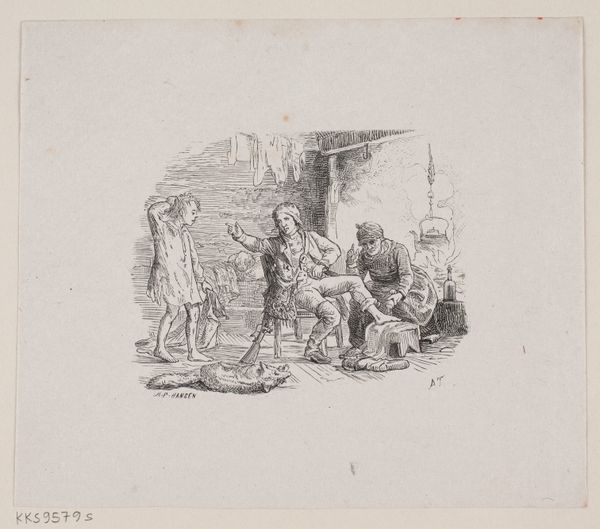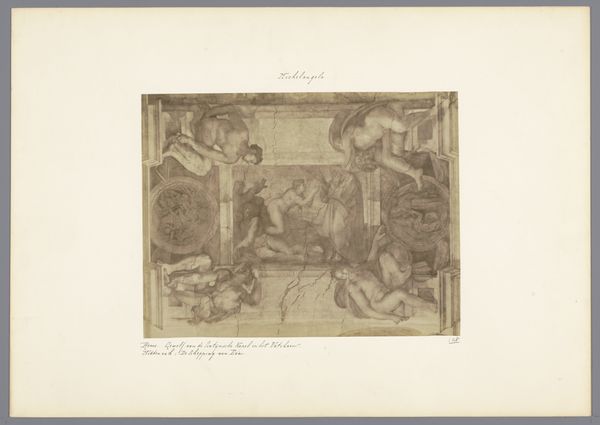
print, etching
# print
#
etching
#
figuration
#
romanticism
#
genre-painting
Dimensions: height 74 mm, width 121 mm
Copyright: Rijks Museum: Open Domain
Curator: Oh, it’s quite striking how the artist captures a heated exchange with simple lines. Editor: Yes, the stark monochrome gives it a certain gravity, wouldn’t you say? The crosshatching looks rushed. I wonder about the printing process. It is clearly an etching of two figures hanging from windows. The piece, “Twistende figuren die uit een deur- en raamopening hangen” – or "Twisting figures hanging from a door and window opening"- is by Ferdinand de Braekeleer, made sometime between 1802 and 1883. Curator: The intensity reminds me of a scene from a play – the way their bodies lean, almost aggressively. Perhaps there’s a moral message? A caution against gossip or envy? I sense the echoes of social anxieties of the time in their strained expressions. Editor: Perhaps, but what about the material constraints of the printmaking process? An etching like this relies heavily on acid-resistant ground, needle tools, and careful timing. The rough edges and the blurry details lead me to wonder what materials Braekeleer had access to, and where he sourced his copper plate and acid solutions. Did he rely on a local craftsman, or did he do it himself? Curator: A very practical point. But observe their costumes – the stripes, the bonnets – could these be markers of class or status? The window and door as barriers but also points of connection – thresholds between private and public spheres? These themes recur throughout genre painting from this period. Editor: Those stripes aren’t just a stylistic choice though! Consider the textile industry and how widespread striped fabric was. It suggests everyday workwear of some kind, readily available and inexpensive. It emphasizes that they are probably workers hanging out windows, or peering out a door. How available and inexpensive was paper? We can't forget that prints circulated because the cost of the materials allowed wider viewership. Curator: Point taken. The work’s charm is that tension between immediacy of human interaction and how it evokes lasting, social anxieties. Editor: I am glad that we've spent time with it.
Comments
No comments
Be the first to comment and join the conversation on the ultimate creative platform.
